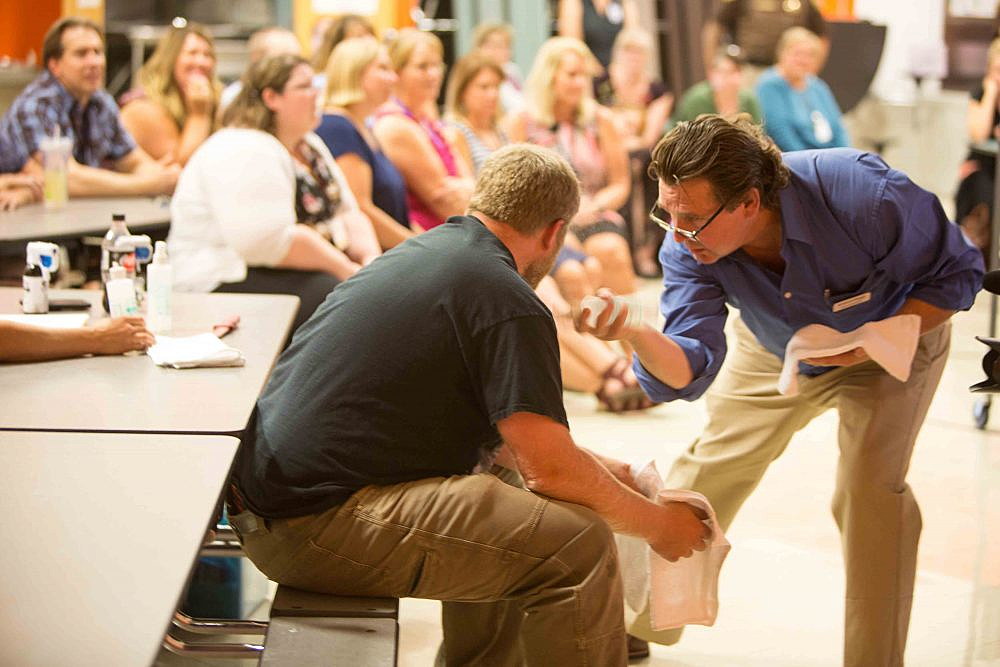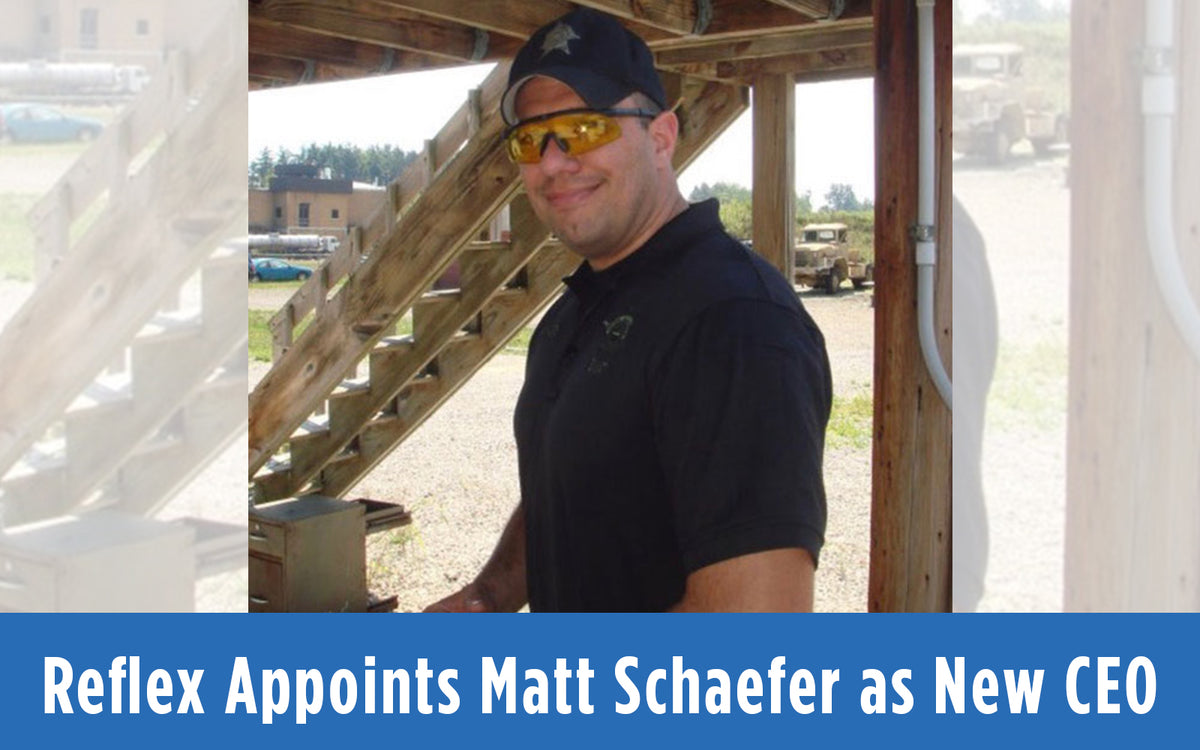Missoula startup looks to enter national debate with tool for nonlethal defense

This article was first published on Missoula Current
When the Triangle Shirtwaist Factory erupted in flames in New York City in 1911, it led to the death of 146 workers. Some died from burns and smoke inhalation. Others met their fate jumping from windows to escape the flames.
The blaze, one of the deadliest in U.S. history, led to sweeping changes in building codes. It commanded the use of fire escapes and extinguishers, and it brought about other safety improvements to ensure such accidents were never repeated, or were minimized at least.
“Maybe in the 21st century, it’s time we did those types of things with respect to violence,” said Joe Anderson, CEO of Reflex Protect in Missoula. “We developed a product that’s a 21st century fire extinguisher for violence.”
The startup, dubbed a potential high-growth company to watch, has developed a nonlethal spray for self defense. The pistol-grip nozzle deploys a stream of jellied CS gas suited for close quarters, such as hospitals, schools and offices.
Unlike bear or pepper spray, Anderson said, the product doesn’t cross-contaminate, and it sticks only to what it hits. That’s beneficial in close settings where the residual effects from aerosols or mists are a concern.
“We got involved with Providence St. Patrick Hospital, which was looking to replace the wasp spray the nurses and receptionists used to protect themselves against workplace violence,” said Anderson. “We were in the development phase and we focused on solving the hospital’s problem, and in so doing, we came up with the use of Iocane, which is our branded name for CS gel, which is a particular type of product we don’t use very much in the U.S.”
Anderson described the company’s trademark gel as colorless, odorless and self-dissipating. Combined with the patented pistol-style spray grip, the product offers a direct, accurate spray that travels about 20 feet.
“It only affects what it hits, and it really only affects the mucus membranes and the respiratory system,” said Anderson. “The combination of the pistol-style spray head with the Iocane CS gel created a product that was highly effective, but very site specific and self-dissipating.”

Along with the defense canister, Reflect Protect teamed up with chemists from Rivertop Renewables in Missoula to develop an accompanying product that “neutralizes, cleans and soothes” the effects of the Iocane gel.
Both products – one for defense and one for recovery – were important to Providence during development.
“They (the chemists) created a special, proprietary blend for us that’s far better than anything anyone has ever seen,” Anderson said. “That was important to the hospitals, so they could get back into the business of taking care of people, including, in some cases, the perpetrator.”
Anderson was raised near the Sweetgrass Hills in Shelby before he left Montana for Stanford and law school at Georgetown University. He settled back in San Francisco as an attorney for Pettit & Martin in the 101 California Building.
There, in 1993, a man boarded the tower’s elevator and exited on the 34th floor in the law firm’s office. He opened fire with two machine pistols, killing eight and wounding six.
The brush with gun violence convinced Anderson to explore other opportunities away from San Francisco. He played in a band and later went to work as an entertainment attorney – work that also included representing digital startups.
That work brought Anderson to Missoula, where he met Paul Gladen, director of Blackstone LaunchPad at the University of Montana. He also met Steve Mangold, who had patented that pistol-style spray head.
“He was introduced to me by a mutual friend who thought my expertise in entrepreneurship might fit with this invention he’d created, but hadn’t been able to get traction on,” Anderson said. “I told (Mangold) about my idea of taking it through LaunchPad and my experience and why I cared about this.”
While Anderson’s own foray into the entrepreneurial world began with workplace violence back in 1993, Reflex Protect and its product was elevated by another episode of mass violence.
In February, as Reflex Protect was working to perfect its product with Providence in Missoula, a gunman entered a high school in Parkland, Florida, and killed 17 people.
“People began to reach out and asked if our product would work for schools,” Anderson said. “We can really help change the national (dialogue) from no guns or all guns, to what if we had these in place and had people trained to use them. Maybe this will help, and that feels great to us.”
Since introducing its product, Reflex Protect has landed several contracts, from Providence hospital in both Missoula and Alaska, to schools in Polson, it’s hospital and court system.
Kaiser Permanente has expressed interest, along with the Montana Hospital Association and several out-of-state entities focused on reacting to gun violence in schools. The company not only looks to sell its product as a nonlethal alternative to hardened facilities, but to train and certify staff on using it.
“We would love to find ourselves in a new conversation nationally, whereby adding a nonlethal active defense alternative for issues of workplace violence or armed intruders is something folks understand they can have and we can give them,” Anderson said. “We do think we have something like a violence extinguisher, something people could look at not as a weapon, but as a household product, or a product you have in your place of work, just like you would have a fire extinguisher.”
Leave a comment
Comments will be approved before showing up.
Also in News

Presidia Gel Offers Powerful Chemical Defense Up To 18 Feet Away
Police Magazine highlights Presidia Gel.

Reflex Protect Appoints Matt Schaefer as New CEO
Reflex Protect announced today that Matt Schaefer has been appointed the new CEO of the company. He succeeds Joe Anderson, a serial entrepreneur, who will continue to be involved with the company as part of its Board of Directors.


